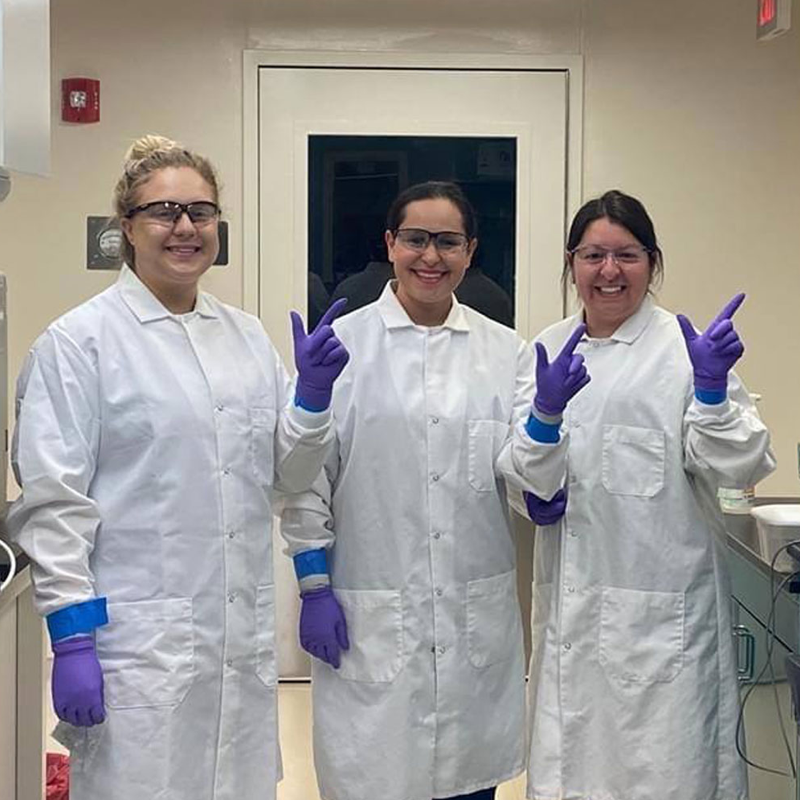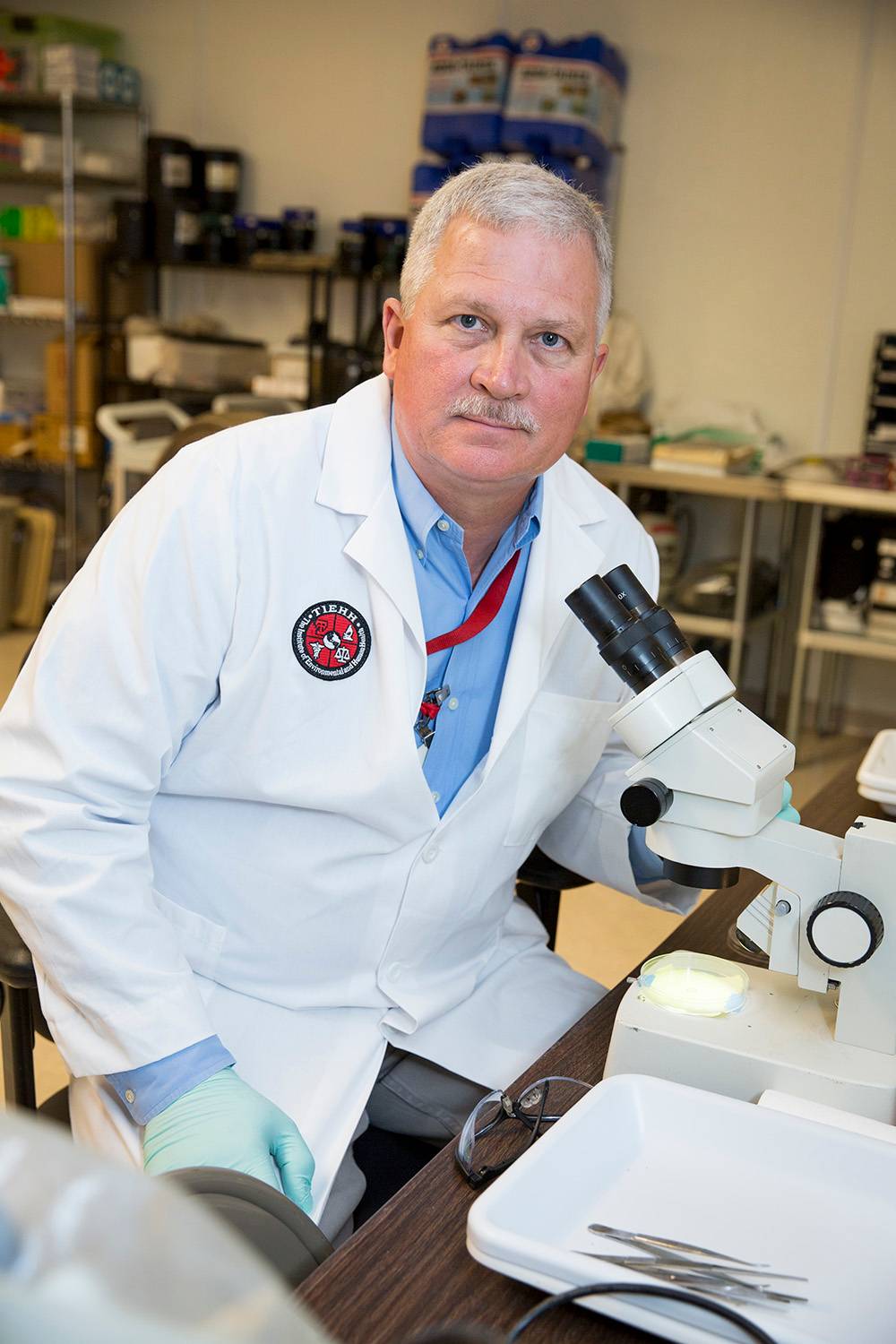
Dr. Steve Presley’s team has developed more efficient and effective arthropod vector collection and testing methodologies as a direct result of various long-term collaborative relationships and partnerships with public health communities.
ADDRESSING MOSQUITO-TRANSMITTED DISEASES
The West Nile Virus has been found in mosquito populations every year in the Lubbock area since 2002. Identifying the virus in mosquitos and informing public health authorities at local and regional levels is critical to controlling the spread of disease. Dr. Steve Presley is Professor and Chair in Environmental Toxicology at Texas Tech. He and his team have been consistently engaged with local, regional, and statewide public health and emergency response communities for more than sixteen years to address the recurrent issue of human diseases transmitted by mosquitoes and other arthropods. Their community partners include the city of Lubbock, Lubbock County, the South Plains Association of Governments, and the Texas Department of State Health Services. More than thirty graduate students have been mentored through the program, each of them participating in collecting, identifying, and testing mosquitoes for various arboviruses, including the West Nile Virus. The data collected is shared with health authorities across the region and state and published in peer-reviewed journals to aid in planning and responding to emerging vector-borne disease outbreaks. Dr. Presley and many of his students have provided lectures and hands-on training to vector control technicians and public health authorities on mosquito biology and identification, as well as new and effective mosquito collection and control technologies.
COMMUNITY PARTNERSHIPS AND PUBLIC BENEFIT
 Dr. Presley's team has developed more efficient and effective arthropod vector collection
and testing methodologies as a direct result of various long-term collaborative relationships
and partnerships with public health communities at all levels. They have also gained
a greater capacity for conducting research to achieve a better understanding of the
environmental and anthropogenic factors that influence pathogen transmission and insecticide
resistance in potential vector populations. The direct engagement with public health
and emergency response communities has also led to dozens of media interviews and
public service announcements related to emerging disease threats, as well as effective
methods of protection against vector-borne diseases. Overall, the most significant
impact has been an increased awareness and understanding of emerging and arthropod-borne
zoonotic diseases in the region.
Dr. Presley's team has developed more efficient and effective arthropod vector collection
and testing methodologies as a direct result of various long-term collaborative relationships
and partnerships with public health communities at all levels. They have also gained
a greater capacity for conducting research to achieve a better understanding of the
environmental and anthropogenic factors that influence pathogen transmission and insecticide
resistance in potential vector populations. The direct engagement with public health
and emergency response communities has also led to dozens of media interviews and
public service announcements related to emerging disease threats, as well as effective
methods of protection against vector-borne diseases. Overall, the most significant
impact has been an increased awareness and understanding of emerging and arthropod-borne
zoonotic diseases in the region.
Project leader:
Dr. Steve Presley, Professor and Chair in Environmental Toxicology at Texas Tech
